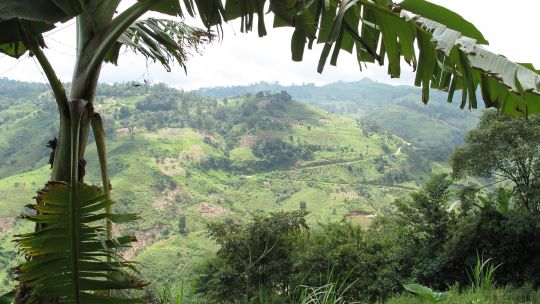Cameroon is a Central African country situated on the Gulf of Guinea. Its population is 24.1 million (2017) and just over half the people live in urban areas. Its landscape is diverse and has plentiful natural resources, but this has not always resulted in commensurate economic growth. Agriculture, forestry and fishing contributed only 15% to GDP in 2017 even though two-thirds of the population depend in whole or in part on incomes from these sectors.
Cameroon passed national legislation governing land and other natural resources in 1974, and the right to own property is included in the Constitution of 1996. Private property rights are supported by the law, but privately-owned land has to be registered. The majority of land in Cameroon is considered National land and held under customary law. This includes all unregistered land that is not managed by the state. Only a relatively small percentage of Cameroonians have registered their land rights. While the 1996 Constitution mandates equality of the sexes and principles of non-discrimination, Cameroon’s laws of succession and marital property allow for patrilineal control of property.

Statistical Analysis
Prindex’s results show that 31% of respondents felt insecure about their tenure rights in 2018 – an equivalent of 3.8 million people aged 18 or over, and higher than the average of the first 15 countries. Fifty five percent of the sample interviewed felt secure about their property rights and the remaining 13% refused or did not know how to answer the question. Tenure insecurity was lowest in the south-west region, where 18% of respondents felt insecure.
The tables and diagrams below show key Prindex results for Cameroon or you can download an infographic.



Gallup: Measuring Global Perceptions of Land and Property Rights by Joe Daly The Prindex ProjectLand-Links

